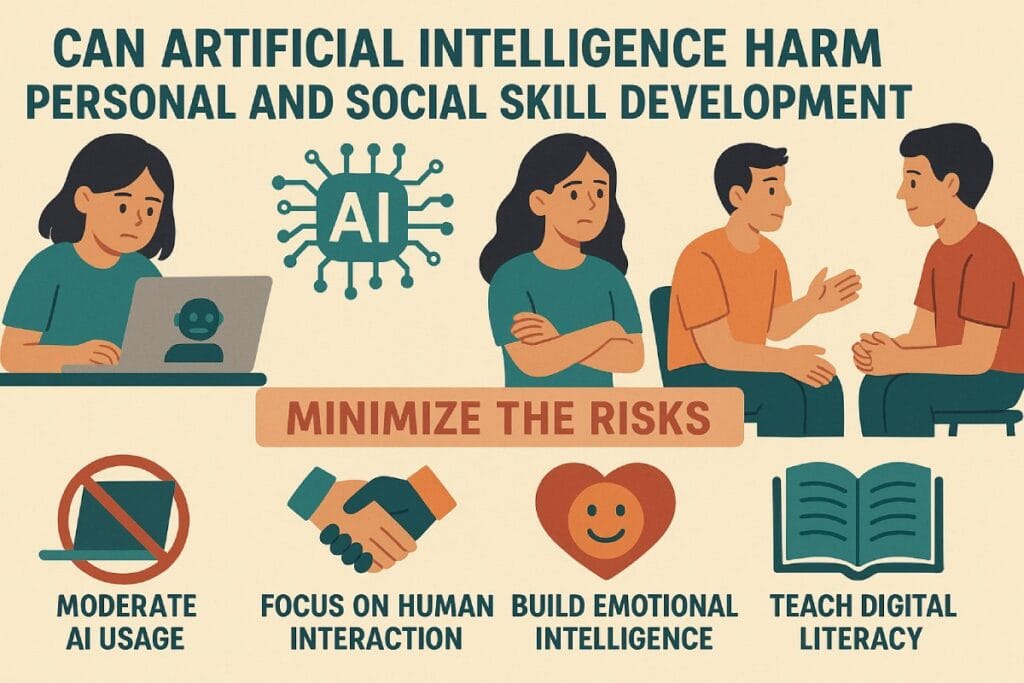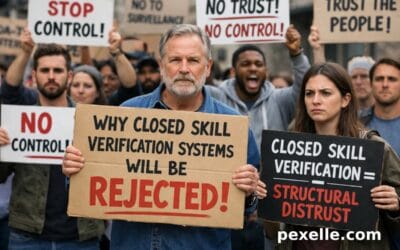Can Artificial Intelligence Harm Personal and Social Skill Development? How Can We Minimize the Risks?

Artificial Intelligence (AI) has rapidly woven itself into the fabric of daily life—from voice assistants and recommendation systems to educational platforms and remote work tools. While AI offers numerous benefits such as accessibility, personalized learning, and efficiency, it also raises an important question: can AI harm our ability to develop personal and social skills? Understanding the potential drawbacks and how to mitigate them is crucial for ensuring balanced human development in an AI-driven world.
The Risks to Personal Skill Development
AI can, paradoxically, both enhance and erode individual skills. Tools like grammar checkers, automatic summarizers, or AI coding assistants may improve productivity but can also encourage mental dependency, reducing the motivation to think critically or solve problems independently. For instance, constant reliance on AI to generate ideas or answers may impair creative thinking, problem-solving, and self-discipline—all essential personal skills in both academic and professional settings.
Furthermore, immersive AI environments, such as adaptive learning platforms, may eliminate the trial-and-error processes that help individuals build resilience and persistence. This smooth, optimized path can hinder the development of patience, frustration tolerance, and real-world decision-making experience.
Impact on Social Skills and Human Interaction
Social skill development is particularly vulnerable to disruption by AI. Human interaction is a nuanced process involving tone, body language, and empathy—elements that AI systems, even the most advanced, cannot fully replicate. As people spend more time interacting with AI rather than humans, there is a risk of diminished emotional intelligence, active listening, and conflict resolution capabilities.
Children and teenagers are especially at risk. Excessive screen time with AI-powered apps and games can replace real-world social interactions, leading to social isolation, reduced face-to-face communication confidence, and a weakened sense of community. Over time, this can lead to feelings of loneliness or even social anxiety disorders.
How to Minimize the Dangers
To mitigate these risks, a balanced and intentional approach is essential. Here are some key strategies:
- Human-AI collaboration, not replacement: Use AI as a supportive tool rather than a complete substitute. For example, use AI writing assistants for feedback, not for generating full essays.
- Emphasize real-world interaction: Schools and parents should encourage offline group projects, debates, and hands-on experiences that require teamwork, empathy, and problem-solving.
- Digital literacy education: Teach users, especially youth, about the limitations of AI and how to critically engage with technology. Understanding how AI works helps reduce overdependence.
- Screen time balance: Set limits for AI-based learning or entertainment. Introduce “AI-free” hours where children and adults interact face-to-face or engage in creative play or hobbies.
- Use AI to simulate—not replace—social skills: AI can be used in role-playing or virtual coaching to build social skills when human resources are limited, as long as it’s followed up with human interaction.
Conclusion
AI is not inherently harmful to personal or social skill development, but its unchecked and overreliant use can be. By proactively guiding how AI is integrated into learning and daily life, we can enjoy its benefits while preserving and strengthening the uniquely human qualities that define our relationships and growth. In the age of intelligent machines, the goal should not be to outcompete them, but to ensure they amplify rather than erode our humanity.
Source : Medium.com




